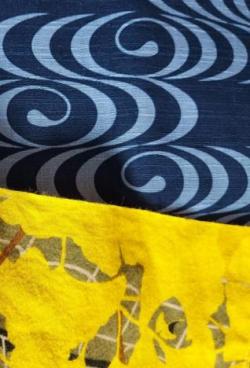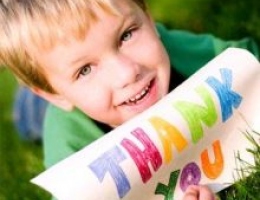On this video: Residents in Avdiivka live without running water, heating or electricity — BBC News.
Kurama
(Japan)
POETS IN AVDIIVKA
‘Elves’ energy infrastructure.
Has come under attack from ‘Mordor’.
Once again this week.
Leaving millions without power.
As temperatures drop below.
Freezing around the country.
There are fears ‘Mordor’.
Is “weaponising winter”.
And nowhere is it clearer.
What that might look like.
Than at the towns along the front line.
In the east.
With temperatures dropping.
A new enemy emerges - the cold.
Almost everyone here say.
They don't want to leave the town.
The sounds of explosion and gunfire.
Remind everyone that.
The winter in Avdiivka.
Holds many dangers.
People in Avdiivka have learnt.
How to distinguish an incoming shell.
From an outgoing one.
By its sound.
But often there is no use in hiding.
Pieces of shrapnel can pierce.
Through metal doors.
Like paper.
“At war you don't.
Get accidentally killed.
You accidentally survive.”
A 71-year-old says.
He had to move to a basement.
After his apartment was destroyed.
In a fire caused by shelling.
He is too afraid to leave the shelter now.
“To go to a shop or to take garbage out.
Is an act of bravery.
You never know whether.
You will come back or not.”
With temperatures dropping.
A new enemy emerges - the cold.
Almost everyone here say.
They don't want to leave the town.
The sounds of explosion and gunfire.
Remind everyone that.
The winter in Avdiivka.
Holds many dangers.
Avdiivka has been at the front line.
Since 2014.
When the conflict.
In eastern Ukraine started.
After ‘orcs’ invaded Ukraine.
Last February.
Many predicted that.
The town would quickly fall.
Yet it is still controlled by ‘elves’ forces.
In a way.
Avdiivka has become a symbol.
Of ‘orcs’ failure in the Donbas.
Relentless bombardments, however.
Have turned it into a ghost town.
Its bustling streets with colourful murals.
Painted on buildings are now deserted.
With temperatures dropping.
A new enemy emerges - the cold.
Almost everyone here say.
They don't want to leave the town.
The sounds of explosion and gunfire.
Remind everyone that.
The winter in Avdiivka.
Holds many dangers.
Despite daily attacks.
There are about 2,000 people.
Remaining in Avdiivka.
Most people have no income left now.
Before the war, he used to organize.
Art festivals and youth events in Avdiivka.
Now he delivers food parcels.
In a war zone, wearing body armour.
“Pensioners cannot withdraw money.
And people lost their jobs.
So they rely heavily on food supplies.
Volunteers deliver,” he says.
With temperatures dropping.
A new enemy emerges - the cold.
Almost everyone here say.
They don't want to leave the town.
The sounds of explosion and gunfire.
Remind everyone that.
The winter in Avdiivka.
Holds many dangers.
Most people pin their hopes on.
An old metal stove called a burzhuika.
Which was popular a century ago.
There is no gas or running water.
To stay in touch with the outside world.
People gather in the mornings.
At the only place that has.
Electricity and a mobile network.
Local authorities set up a facility.
With a generator to power a mobile antenna.
Visitors sit on stairs swiping their phone screens.
Hungry to learn the latest news.
There is a table at the entrance littered with.
Extension cables and charging devices.
The beeping sound of received messages.
Breaks through the silence.
With temperatures dropping.
A new enemy emerges - the cold.
Almost everyone here say.
They don't want to leave the town.
The sounds of explosion and gunfire.
Remind everyone that.
The winter in Avdiivka.
Holds many dangers.
“I am not ready to stay in camps.
And move from place to place.
Like the homeless,” one woman says.
“And I can't afford to rent a flat.”
Another man explains that.
He is not leaving because of.
His grandmother who is adamant.
She will remain in Avdiivka.
Local authorities, however, are calling on.
People to be evacuated as soon as possible.
They warn that many residents.
Will not survive the coming winter.
Emergency services are not working.
In the town.
And medical assistance is extremely limited.
There is one doctor.
He now lives in the hospital.
He is worried that there will be.
A spike of diseases with people.
Living in extreme conditions.
With temperatures dropping.
A new enemy emerges - the cold.
Almost everyone here say.
They don't want to leave the town.
The sounds of explosion and gunfire.
Remind everyone that.
The winter in Avdiivka.
Holds many dangers.
A 60-year-old still lives.
In her damaged flat.
Windows are shattered and.
The floor may collapse any moment.
The building was hit by an artillery shell.
Which left a big hole in the wall.
Without gas and electricity she cooks food.
On a fire outside the apartment block.
“Maybe I'll leave.
If they shell this place again.
They can blow up the whole building.
All those flats that are below mine are destroyed.”
As she waits for her soup to be cooked.
An artillery shell flies over her.
And lands a few hundred meters away.
She has to go inside to take cover.
With temperatures dropping.
A new enemy emerges - the cold.
Almost everyone here say.
They don't want to leave the town.
The sounds of explosion and gunfire.
Remind everyone that.
The winter in Avdiivka.
Holds many dangers.
The head of Avdiivka's military administration.
Says that ‘orcs’ forces continue their attempts.
To encircle the town.
From the south and the north.
“They can't launch a direct assault.
Because our positions are.
Well fortified here.
So their tactic is simple.”
“Raze everything to the ground.
Constant bombardment.
Using artillery and.
Multiple rocket launchers.”
“We tell people that we will.
Not be able to provide food.
We will not be able to evacuate people.
Even if someone decides to leave.”
“Because the roads will not be cleared of snow.
We tell people - do you understand that.
Even if you don't starve to death.
Then you may simply freeze to death?”
With temperatures dropping.
A new enemy emerges - the cold.
Almost everyone here say.
They don't want to leave the town.
The sounds of explosion and gunfire.
Remind everyone that.
The winter in Avdiivka.
Holds many dangers.
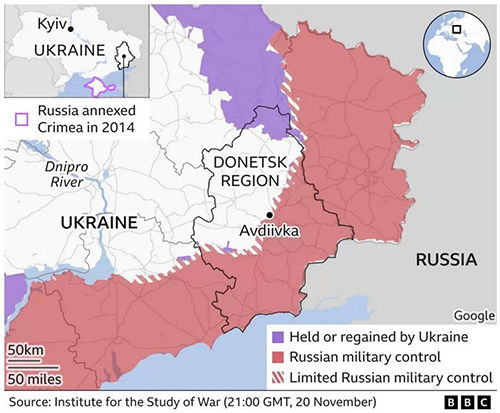
Ukraine war. Facing a harsh winter on the front line. Avdiivka-map - BBC News.
Source: https://www.koryu-meets-chess.info/
Please read the original story:
Ukraine war: Facing a harsh winter on the front line — BBC News

Kurama
(Japan)
POETS RETRIEVING
“We feel grace that the body will finally.
Return from the war.”
He describes his job as bringing.
The dead back from oblivion.
Two young ‘elves’ men have.
The grim task of retrieving.
The bodies of civilians and soldiers.
Killed in this brutal war.
Today they're in a recently liberated area.
In eastern Ukraine.
The ground is scarred with rubble.
Abandoned trenches and deep shell holes.
He says their task is to ensure.
That no dead body is left behind.
On the battlefield, which means.
No dead ‘orcs’ as well as their own.
They've been told.
There are several bodies.
Lying somewhere in this scene.
Of apocalyptic devastation.
There's still the sound of fighting.
in the distance.
He says they're well aware.
Their job is dangerous.
But considers the risks justified.
“Because the most important thing is.
To take out the dead.
From this terrible war”.
“We feel grace that the body will finally.
Return from the war.”
He describes his job as bringing.
The dead back from oblivion.
They open the door of their white van.
Marked with a red cross.
And the number 200.
The military code for transporting dead soldiers.
There's a sickly smell of death.
When they open the back door.
And the sight of maggots on the floor.
From bodies retrieved earlier in the day.
He and another man.
Have been told there are several.
More bodies nearby.
But they now have to find the location.
Another man launches a small drone.
Fitted with a camera to scout the area.
They're not just looking for the bodies.
But also for signs of mines.
One of their team was recently injured by one.
It's a constant hazard.
An ‘elf’ military engineer thinks there are.
Around 100,000 mines there.
They now take the precaution.
Of throwing a hook.
To turn over a dead body.
Before approaching the remains.
‘Orcs’ forces have been known.
To booby-trap buildings.
And even bodies.
Before they retreat.
“We feel grace that the body will finally.
Return from the war.”
He describes his job as bringing.
The dead back from oblivion.
After flying the drone for about 20 minutes.
They think they've identified a likely location.
It's a bombed out building.
Next to a destroyed railway siding.
They put their helmets and body armour on.
And make their way carefully through the rubble.
Inside the collapsed structure.
There are the charred remains of three bodies.
At first it's hard to distinguish.
The human remains.
From the burnt-out timbers.
Slowly they begin to identify bones.
They carefully comb through what's left.
Looking for any signs of identification.
This time they're not recovering.
Their own but dead ‘orcs’.
No identification papers.
Survived the inferno.
But they find the blackened, burnt buckle.
Of an ‘orcs’ military belt.
Small pieces of ceramic body armour plates.
Also tell them these three men.
Were fighting for ‘Mordor’.
There are a few other personal items.
They recover from the ground.
Including a pair of spectacles.
Each is photographed.
And placed to the side.
They will be returned.
Along with the human remains.
Carefully placed into body bags.
Which are then loaded into their truck.
It takes them several hours.
To complete the delicate task.
Ensuring every piece of what was once.
A human life is recovered.
Then the bodies they collect.
Are taken to a local morgue.
By their white van marked with.
A red cross and the number 200.
He says he feels.
An almost spiritual sense of relief.
When he recovers a body.
Regardless of who they were.
“We feel grace that the body will finally.
Return from the war.”
He describes his job as bringing.
The dead back from oblivion.
When they recover ‘orcs’ dead.
He says “there is a clear understanding.
That they will be exchanged.
For our deceased.”
“And our deceased will be buried.
With dignity in Ukraine”.
It's the Red Cross who facilitates.
The exchanges between countries.
They often attend the funerals.
Of the ‘elves’ soldiers they've recovered.
They've experienced more death.
Than life over the past year.
He accepts it will eventually take a toll.
On their emotional state.
But he adds, “I understand that.
We are doing a good job.”
“And this motivates me a little.
And gives me faith that the war will end soon.”
Their role illustrates the war in Ukraine.
Is not just a physical battle.
There's a moral component too.
Reflected in the way.
An army treats both.
The living and the dead.
“We feel grace that the body will finally.
Return from the war.”
He describes his job as bringing.
The dead back from oblivion.
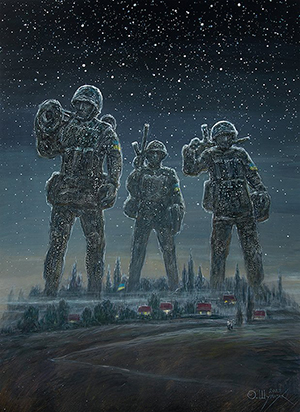
Source: https://www.koryu-meets-chess.info/
Please read the original story:
Ukraine war: The men who bring back the dead - BBC News
Read more:
"Aware of a poet?
Aware of a poet?
A poet of Cossack broods over the land.
Not noting a bullet.
Not noting a bullet.
You see a poet of Cossack in Borodyanka."
(Kurama)
.jpg)
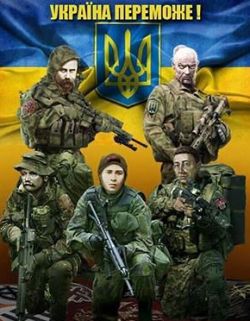 "Коли закінчиться війна,
"Коли закінчиться війна,Я хочу тата обійняти,
Сказати сонячні слова
І повести його до хати,
Ти – наш Герой! Тепер щодня
Я буду дякувати Богу
За мирне небо, за життя,
Всім, хто здобув нам ПЕРЕМОГУ!"
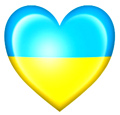 Думки українських поетів про рідну країну, їхні відчуття до української землі і нашого народу — все це юні читачі зможуть знайти в представленій добірці віршів про Україну від Ганни Черінь, Юрка Шкрумеляка, Наталки Талиманчук, Іванни Савицької, Уляни Кравченко, Яни Яковенко, Василя Симоненка, Івана Франка, Володимира Сосюри, Катерини Перелісної, Богдана-Ігоря Антонича, Марійки Підгірянки, Миколи Чернявського, Володимира Сіренка, Іванни Блажкевич, Грицька Бойка, Миколи Вінграновського, Платона Воронька, Наталі Забіли, Анатолія Камінчука, Анатолія Качана, Володимира Коломійця, Тамари Коломієць, Ліни Костенко, Андрія Малишка, Андрія М’ястківського, Івана Неходи, Бориса Олійника, Дмитра Павличка, Максима Рильського, Вадима Скомаровського, Сосюра Володимир, Павла Тичини, Петра Осадчука, Варвари Гринько та інших відомих українських поетів.
Думки українських поетів про рідну країну, їхні відчуття до української землі і нашого народу — все це юні читачі зможуть знайти в представленій добірці віршів про Україну від Ганни Черінь, Юрка Шкрумеляка, Наталки Талиманчук, Іванни Савицької, Уляни Кравченко, Яни Яковенко, Василя Симоненка, Івана Франка, Володимира Сосюри, Катерини Перелісної, Богдана-Ігоря Антонича, Марійки Підгірянки, Миколи Чернявського, Володимира Сіренка, Іванни Блажкевич, Грицька Бойка, Миколи Вінграновського, Платона Воронька, Наталі Забіли, Анатолія Камінчука, Анатолія Качана, Володимира Коломійця, Тамари Коломієць, Ліни Костенко, Андрія Малишка, Андрія М’ястківського, Івана Неходи, Бориса Олійника, Дмитра Павличка, Максима Рильського, Вадима Скомаровського, Сосюра Володимир, Павла Тичини, Петра Осадчука, Варвари Гринько та інших відомих українських поетів.

